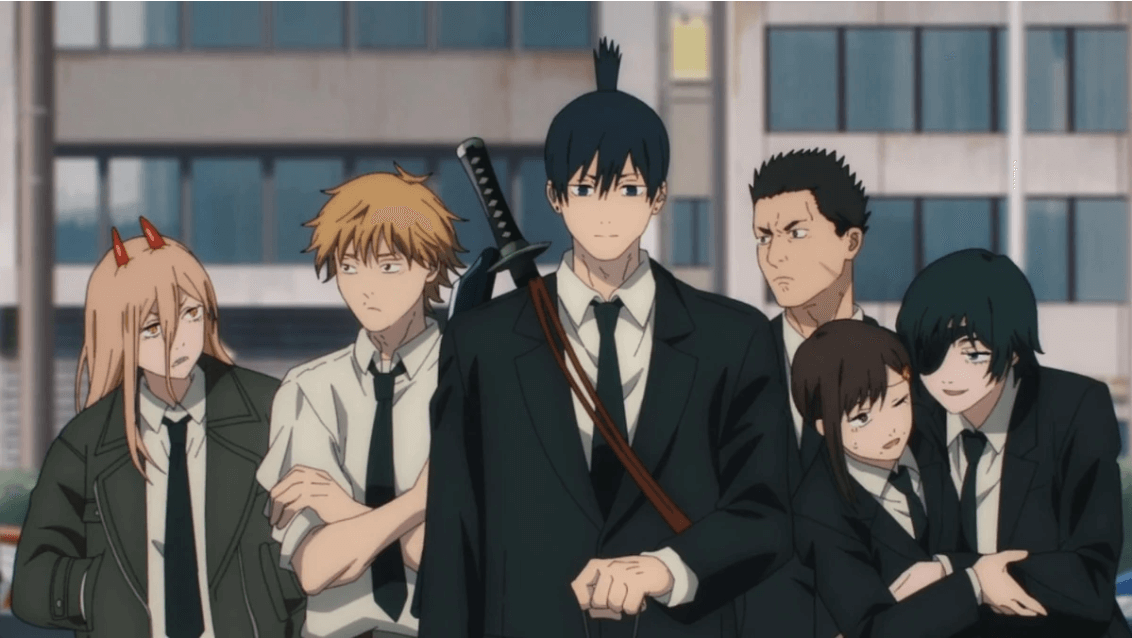From Here to Eternity Devil: ‘Chainsaw Man
A few weeks ago, when I started watching Chainsaw Man for the first time, I knew very little about it. All I knew was that Power, a man with chainsaws, and a chainsaw puppy that was just too cute to handle, were characters. (And how uneven the tempo was.) Naturally, since since Denji cut the Tomato Devil, I’ve been hooked with the show, but not just because of the spectacular animation and deliciously vile lead character.
Chainsaw Man is simple to dismiss as unnecessary and immature due to its strange sense of humour, bloody battle scenes, and ludicrously randy main character. However, the show’s complex undertone is hidden by these (clearly severe) red herrings. The spectator is given something to consider in almost every scene in Denji’s story, whether it is a comment on gun violence or an analysis of existentialism. But what really interests me is what it says about launching a profession and surviving as a young adult.
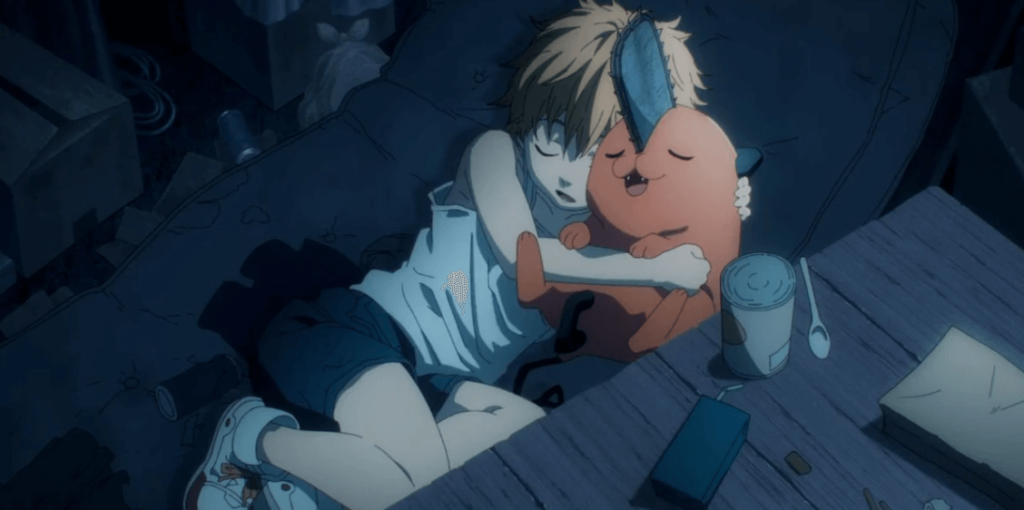
Denji, the play’s main character, is forced into poverty and servitude after his father killed himself, leaving the young Denji responsible for fulfilling his debt to the yakuza. The yakuza boss prevents him from running away by ordering him to pay back his father’s debt or risk being killed. Denji, with the help of Pochita, his loyal Chainsaw Devil who resembles a dog, toils relentlessly for years to pay off his inherited debt.
The yakuza boss keeps Denji in poverty by paying him pitiful sums that are a small portion of what he earns when he kills demons (if that). Denji is forced to live alone in what appears to be a toolshed equipped with a mattress, with just Pochita as company. Slices of bread for dinner are the only food Denji can afford while he is ill and on the verge of death. His boss, who makes him stretch every yen to the absolute limit, likewise treats him poorly andignores him. Even his wildest desires seem trivial and unimportant, and all he really wants is a girlfriend and jam on his toast—things that have been out of his reach for years.
Up until the yakuza boss admits at the conclusion of the first episode that he has been working with a devil to achieve even more power, everything of this is real. Denji battles the boss and his puppet master and loses his life in the process until Pochita sacrifices his life to save Denji and give him the chainsaw skills. With his newly acquired skills, Denji decimates the waves of undead launched at him by the devil, collapsing after doing the job.
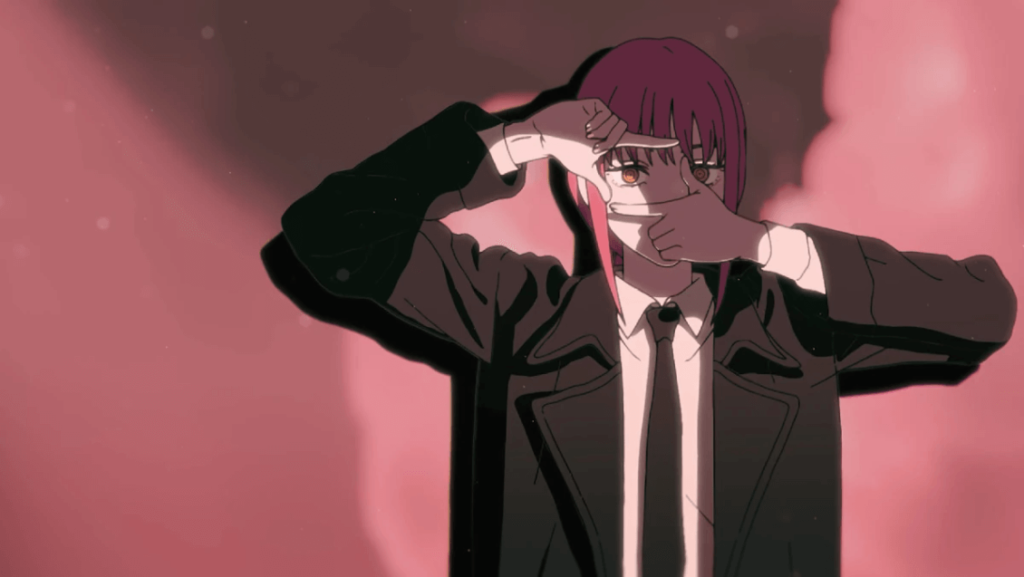
Currently Makima. She was originally en route to kill the same devil Denji had killed. She was a high official in a demon-hunting organisation. Makima would typically have to kill Denji, who is only alive today thanks to his ties to Pochita. Makima decides to take Denji in because she recognises his narrow-minded, susceptible to persuasion objectives. She offers him a better life if he acts as her “dog.” He gets a place to live, jam for his toast, and maybe even a wife! The issue? If he tries to leave his new house or disobeys Makima, she will have him killed. He is too focused on the carrot that is being held out in front of him to notice.
I had an unexpected reaction to the whole story. Even though the specifics weren’t identical, I was able to recognise the trap Denji was in right away. I can’t say I have a particularly deep understanding of any culture other than the one I was raised in, but the vast majority of people are born into debt or forced to amass debt just to obtain a glimmer of a good existence.
After allegedly securing his escape by killing his captor, Denji is later imprisoned once more. His only two options are to starve or try to preserve his life, like many people who willingly take on debt in order to possibly have a taste of the life they love, so he happily accepts Makima’s fatal, degrading offer. And he’s supposedly destined to live under her rule going forward.
Chainsaw Man has a better connotation for young adulthood. I was reminded of how challenging it is for me to express my real gratitude whenever a friend or member of my family makes a dinner for me by Denji’s joy over his first bite of udon and pork. Despite the fact that the adventures of the programme are obviously of a better calibre than anything I will ever experience (hopefully), they all manage to convey an emotion that I am deeply aware of.
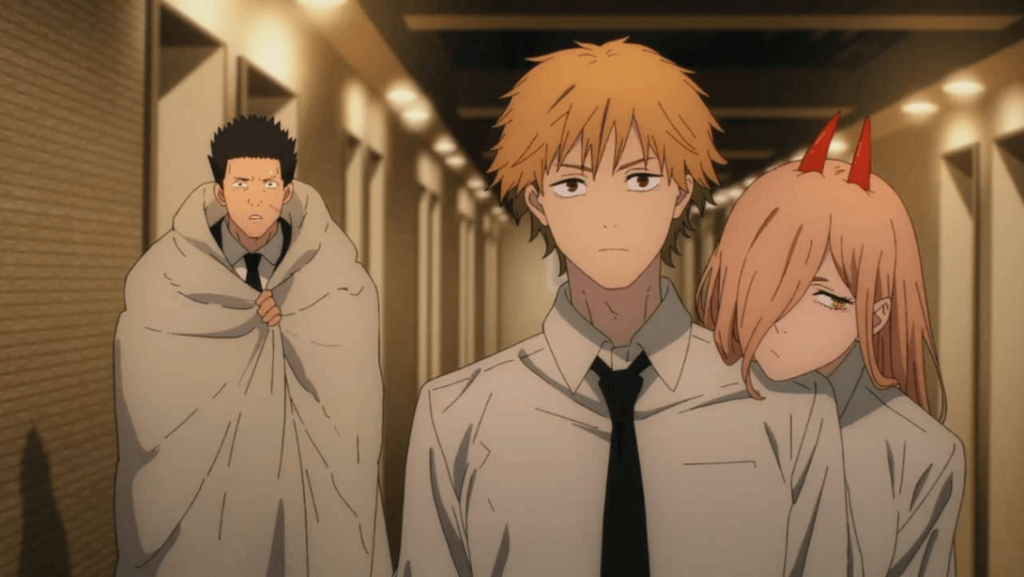
Nearly giving up on the battle with the Eternity Devil, our troop of heroes almost did. They find themselves imprisoned in a hotel’s eighth level, which loops itself indefinitely and is a place where time is stopped in an unending moment. Time appears to be passing more slowly than usual according to every clock, but those who are ensnared in this horrific nightmare are not among them. Since turning into an adult, there have been more and more instances when it feels like an eternity; time loses all significance when you’re in a precarious situation, applying for job after job after job, or working a job that isn’t fulfilling. There are no other choices or escape routes. Rent is due at the end of the month, so you need to eat. As the days pass and you continue to check your email inbox, time becomes meaningless. Weeks become elongated, unending moments. Between sleep, work, and hours of staring at a wall, meals occasionally happen. Feeling like quitting up is easy.
In the same way that our heroes employ this tactic to battle the Eternity Devil, there is only one way out—through. In order to gain more strength, Denji literally dives into the beast’s stomach and starts to dismember it. We must play the cards fate has dealt us and hope for the best, even if it involves suffering, for there is nothing we can do to change them.
When a relentless, insurmountable period of pain is finally over, there is a palpable sense of catharsis and relief. Chainsaw Man captures the sensation of satisfaction that comes from realising your problems are momentarily solved brilliantly when Denji collapses. While Denji is taking advantage of his first rest in several days by lying unconscious on the ground, his teammates decide to go out and celebrate.
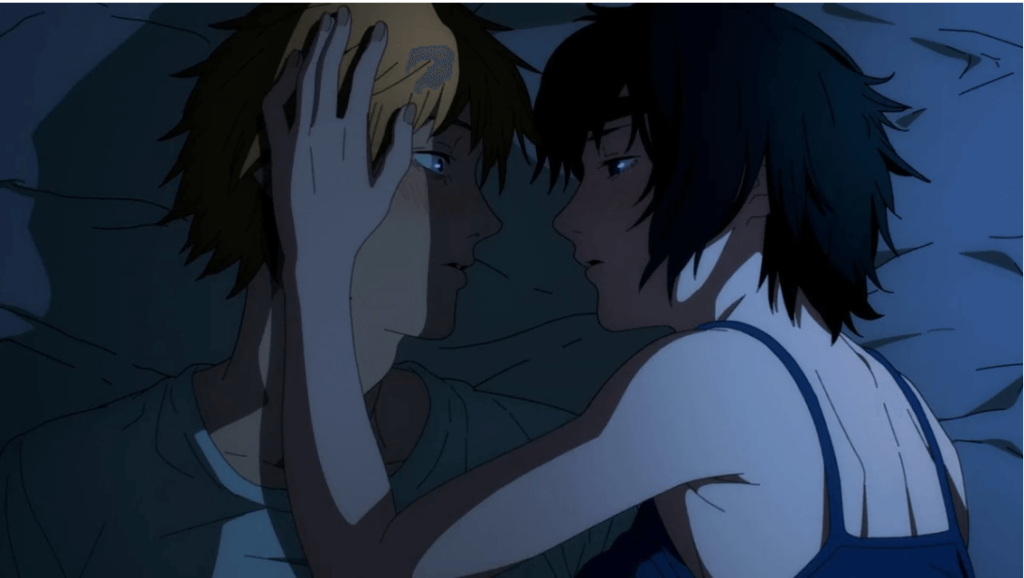
At that supper, Denji eventually has the chance to kiss a coworker. Not a particularly challenging goal, but one that has regularly emerged throughout the programme. Denji usually gets a distorted version of what he wants. After his first kiss goes horribly wrong, his inebriated employee Himeno drives him (passed out) back to her place (to put it mildly). At the end of the episode, she wakes him up and asks if he “wants to do it.”
For many people my age, the grass on the other side of the fence isn’t just greener; it’s a lovely, verdant emerald green whose vivid promises of comfort, stability, a full fridge, and a roof over our heads are the stuff of dreams. Denji learns that although though his life’s purpose isn’t quite as far away, sometimes getting what you want might feel like grasping at a monkey’s claw. You might find that you don’t have time for your friends or loved ones, even if you acquire that great full-time job. Even if you do get the kiss you’ve always wanted, you already know what will happen next.
Chainsaw One of its best qualities is how its characters handles this frequently gloomy truth. Man realises that life is unrelenting. While Himeno and Aki seek purpose in vengeance and the occasional nicotine hit, Power seeks feline companionship. Denji makes the most of his second chance at life by relishing every bite of noodle, every bite of karaage, and, yes, even every bite on his finger.
